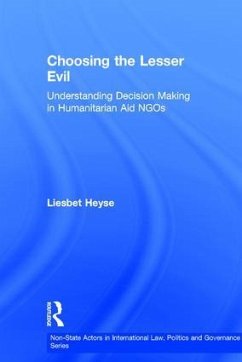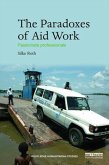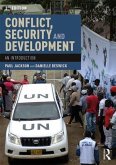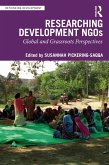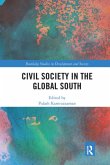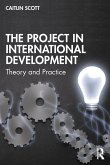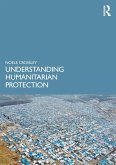How do non-governmental humanitarian aid organizations initiate, terminate and extend their project activities? Humanitarian aid organizations regularly face difficult decisions about life and death in a context of serious time constraints which force them daily to select whom to help and whom not to help. Liesbet Heyse focuses on how humanitarian aid organizations make these decisions and provides an inside view of the decision making processes. Two NGO case studies are used as illustration - Médecins sans Frontières (MSF) and Acting with Churches Together (ACT) - both of which operate in an international network and represent specific types of NGOs often found in the community. This book opens up the black box of NGO operations, provides an empirical account of organizational decision making and combines insights of organization theory and organizational decision making theory.
'In this fine book, Liesbet Heyse applies management decision-making theory to humanitarian organizations. She sheds new light on the understudied topic of management of humanitarian action. Strong in theory and rich in empirical detail, this book will be required reading for humanitarian practitioners and management scholars alike.' Dennis Dijkzeul, Ruhr University, Germany '...this empirically rich volume explores the often dramatic choices agencies have to make...By focusing on the organizational...aspects of humanitarian operations, the book makes a major contribution to opening up the black box of humanitarian organizations and reveals their internal dynamics and differences. Laying out decision-making models, the book can help humanitarian agencies to put their own strategies to the test and help them improve the life and death decisions they are dealing with.' Dorothea Hilhorst, Wageningen University, The Netherlands 'Liesbet Heyse has led the way in looking at the decision-making process of humanitarian NGOs.' Transnational Perspectives 'Liesbet Hayes has led the way in looking at the decision making process of humanitarian NGOs. There are probably not many differences due to national styles or religious convictions, but more studies along these lines would be welcome.' International Journal on World Peace '...an interesting source of inspiration for new research in this field...the information in the book will be useful to those who want to know about the internal dynamics of NGOs. It is, of course, relevant for academics and fundamental for donors and for other NGOs wanting to compare their experiences.' Administrative Science Quarterly '...the book is relevant to students, academics, and practitioners. It contains a wealth of useful information about how MSF Holland and ACT Netherlands function, and it clearly demonstrates that the decision-making processes are largely undertaken within the organizations which have access to financial resources, wi

